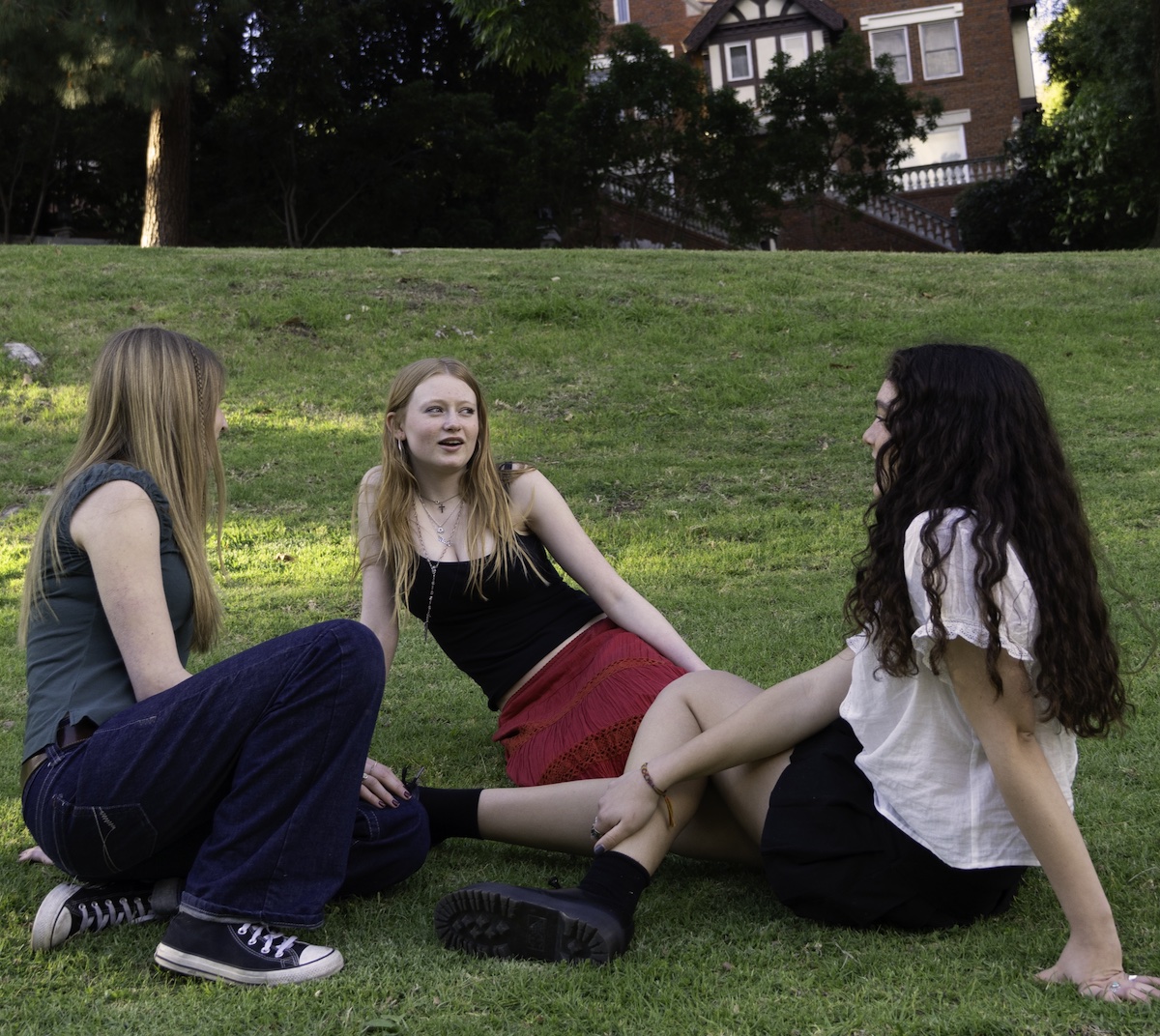
By Amelia ’22 and Lucy ’22
The history of female justices on The Supreme Court
Among the countless events that have occurred in American politics this past year, there are two significant changes regarding representation of women in the Supreme Court: the death of justice Ruth Bader Ginsburg and the nomination and confirmation of Associate Justice Amy Coney Barrett. These two women and the differences between their ideologies have led many Americans to consider the role and responsibilities of women on the Supreme Court.
Until Sandra Day O’Connor was appointed by Ronald Reagan in 1981 no woman had served on the Supreme Court for the 192 years it existed; O’Connor held her seat for nearly 25 years until she retired in 2006. During her time on the Supreme Court, O’Connor was considered to be a moderate conservative and she often voted in line with conservative political views. Unlike the male conservative justices, O’Connor did however vote to uphold the Roe v. Wade decision on abortion rights, providing the deciding vote needed maintain the court’s earlier decision. However, by 1993 Bill Clinton had appointed another female justice: Ruth Bader Ginsburg.
During her 27 years on the Supreme Court, Ginsburg made significant strides in the advancement of women’s rights and gender equality initiatives. Ginsburg played a crucial role in court decisions on issues such as women’s reproductive rights, education, equal pay and many other gender-specific issues.
Although women make up about 50.5% of the United States’ population, only 4.3% of the past and current Supreme Court justices have been women. Outside of the Supreme Court, only 34% of all state court judges are women. The gender imbalance continues today, as currently, only three of the nine United States Supreme Court Justices are women: Sonia Sotomayor, Elena Kagan and recent Trump appointee Amy Coney Barrett.
Ruth Bader Ginsburg’s legacy
Ruth Bader Ginsburg was a part of the United States Supreme Court from 1993 until her death in September of 2020. She served as an associate justice on the Supreme Court and was considered a part of the moderate-liberal block, as she actively voiced her views in favor of gender equality, civil rights and various other liberal agendas. She was not only the second woman in American history to serve on the Supreme Court, but was the first Jewish woman justice to serve on the court. Before being appointed to the Supreme Court, Ginsburg was the director of the Women’s Rights Project of the American Civil Liberties Union in the 1970s and was an important activist for gender equality in America. Ginsburg was very vocal about her support for the ability of women in America to have the right to an abortion and supported the legalization of same sex marriage.
Ginsburg was appointed in 1980 by President Jimmy Carter to the United States Court of Appeals for the District of Columbia. She served on that court until being appointed to the Supreme Court by President Bill Clinton in 1993. Ginsburg was a strong and forceful voice in the struggle for gender equality and actively tried to fight for more equality amongst men and women in the United States. In 1996, Ginsburg played a large role in the landmark case of United States v. Virginia. This case discussed whether the Virginia Military Institute should be able to refuse women. Ginsburg argued that the refusal to admit women to the military institute is a violation of the Fourteenth Amendment’s Equal Protection Clause. Ginsburg was also an advocate for women’s rights to having an abortion in the landmark case of Roe v. Wade.
Ruth Bader Ginsburg served as a strong voice for gender equality throughout her 87 years and was a strong activist for women, members of the L.G.B.T.Q community and minorities throughout her 27 years as a justice for the United States Supreme Court. Her death left many nervous about when the vacant spot would be filled on the court. Many wondered how her sudden death would have an impact on the 2020 presidential election. Regardless of how Ginsburg’s death affected this year’s presidential race, Ginsburg played an integral role in the fight for equality for many people in America.
Amy Coney Barrett’s qualifications and politics
Amy Coney Barrett, the newest justice on the Supreme Court, spent the majority of her career focused in academia, with experience as a professor and litigator. Barret is a graduate of Rhodes College and Notre Dame Law School. After completing law school, Barrett worked for more than 15 years teaching civil procedure, constitutional law and statutory interpretation as a Notre Dame Law professor. Until joining the 7th Circuit Court of Appeals in 2017, Barrett’s career did not follow the path typical of previous Supreme Court Justices. For example, she had never held a position as a government prosecutor, defense lawyer, attorney general or counsel member to a legislative body. Unlike the other current Supreme Court justices, Barrett had never tried a case to verdict or argued an appeal in any court. Additionally, she provided 1,800 pages of relative legal documents for her Supreme Court confirmation hearing, while previous nominees like Justice Elena Kagan provided 170,000 pages and Justice Brett Kavanaugh who provided over 1 million. Regardless, Speaker of The House Mitch McConnell said that “Judge Amy Coney Barrett is an exceptionally impressive jurist and an exceedingly well-qualified nominee to the Supreme Court of the United States.”
Barrett has consistently expressed conservative beliefs and will shift the court’s balance of power even further to the right, leaving conservatives in the majority 6-3. Barrett is a “constitutional originalist,” meaning that she interprets the constitution as law based on the original understanding at the time of its ratification. Barrett explained that in her opinion the Constitution’s meaning doesn’t change over time, saying “it’s not up to me to update it or infuse my own policy views into it.” However, The Hill reporter Katie Scofield expressed how Barrett’s claim of being a female originalist is ironic, given that the Constitution at the time of its creation did not provide women with full citizenship, the right to vote or let alone the right to hold a seat on the Supreme Court. In addition to her originalism, Barrett has traditionally conservative views on many issues such as gun laws, healthcare and the death penalty. Furthermore, her conservative beliefs shape her stance on human rights matters such as abortion and gay marriage.
Barrett has not publicly stated that she plans to overturn the 1973 Roe v. Wade decision, which legalized abortions across the United States, but she has suggested that she is skeptical of many interpretations of abortion rights. In a series of decisions regarding abortion laws in Indiana 2017, Barrett ruled to tighten restrictions by requiring doctors to notify the parents of minors seeking abortions and banning abortions for reasons related to sex, race or disability. Although neither of these Indiana restriction laws were passed, these judgments could demonstrate her conservative views on abortion. During her Confirmation Hearings, Barrett commented on her plans regarding Roe v. Wade decision, stating that “it’s not open to me or up to me and I would have no interest in, as a Court of Appeals Judge, challenging that precedent.”
Amy Coney Barrett’s confirmation has also alarmed the LGBTQ community, who fear that she may threaten their rights to adopt and even marry. Barrett has made harmful comments about the LGBTQ community, such as publicly using the phrase “sexual preference” when referring to homosexuality and calling transgender women “physiological males”. Twenty-seven LGBTQ organizations opposed her confirmation to the Seventh Circuit Court of Appeals in 2017, stating that her “views on civil rights issues are fundamentally at odds with the notion that LGBTQ people are entitled to equality, liberty, justice and dignity under the law.” While it is unlikely that the Obergefell v. Hodges decision, which legalized gay marriage in 2015, will be overturned, Barrett’s confirmation may endanger specific rights within a marriage. For example, people within the LGBTQ community could receive fewer protections in employment, education, housing and credit. Likewise, Barrett strongly opposes the Affordable Care Act, which has provided government healthcare to the LGBTQ community free from discrimination.
Since Barrett’s confirmation, The Supreme Court is the most conservative it has been in the past 70 years. This has been a source of anxiety and controversy among many democrats who believe that the 6-3 conservative majority in the court will hinder progress on these human rights issues.
Marlborough community’s reaction to the Supreme Court changes
Ruth Bader Ginsburg’s death saddened many Marlborough students and staff members. As the news of Ginsburg’s death spread through social media and other news outlets, many paid tribute and recognized Ginsburg’s lasting impact for women in the United States. Ginsburg’s death brought feelings of unease and worry for the future of the court depending on who would fill the empty seat. Reynolds ‘21 expresses how she felt after hearing about Ginsburg’s death:
“I did not realize how crucial her role on the Supreme Court was in protecting my rights until after her death,” Reynolds ‘21 said.
Americans wanted to honor Ginsburg’s life by waiting until after the presidential election to fill her seat on the court. However, Barrett’s nomination and confirmation all happened before the election and has created a lot of controversy. Americans across the country believe that the nomination of Barrett happened too fast after Ginsburg’s death and the court should honor Ginsburg by waiting to confirm a new judge. The controversy over President Trump’s nomination for the vacant seat stemmed from the rejection by Senator Mitch McConnell of President Barack Obama’s Supreme Court pick in 2016. Eight months before the 2016 election, President Obama nominated Merrick Garland to fill Antonin Scalia’s vacant seat. However, McConnell argued that the nomination of a candidate should wait until it is no longer an election year as he thought President Obama’s nomination was too close to the election. He added that voters should have the right to choose which president will choose the justice to fill the seat. Contradicting himself in 2020, McConnell willingly helped President Trump nominate and confirm Amy Coney Barrett just three months before the presidential election.
World Language Department Head Elizabeth Vitanza was not shocked by Mitch McConell’s involvement and support for Trump’s Supreme Court nomination just a few months before the election:
“I was not surprised by it,” Vitanza said. “His interests are pretty narrow and not [for] the will of the people”.
Right before her death, Ruth Bader Ginsburg wished that her spot on the court not be replaced until a new president was elected in November. History Department Instructor Catherine Atwell feels that Barrett’s nomination happened too soon after Ginsburg’s passing and is disrespectful to Ginsburg and all her work she put into fighting for women’s rights:
“Justice Coney Barrett is certainly qualified,” Atwell said. “But it seemed like an intentional repudiation of Justice Ginsburg so soon after her passing”
The confirmation of Justice Coney Barrett in October left many frustrated in the rapid speed that President Trump used to get Barrett confirmed before the election in November. 50% of respondents to a survey sent to the Marlborough students and faculty expressed motivation to get involved in protecting their rights after the confirmation of Justice Coney Barrett. Over 75% of respondents feel scared from the recent confirmation of Barrett especially because of her quick confirmation after Bader’s death.






